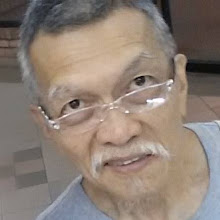Why not right here in DC?
Taking to heart the wisdom i've collected in my book Wisdom for the Soul: Five Millennium of Prescriptions for Spiritual Healing, start where you are with what you have. Ok, i'm here and what do i have? The will, the vision and some skills. I've discovered there are already some in the DC area who are interested in the idea of an intentional community, in permaculture, in finding solutions to cope with peak oil and other crises that increasingly beset us. It will be only a matter of time before we'll get to critical mass and something will happen.
The main aims of the community i envision:
Creation - To imagine, design and construct a permacultural center within the District
Organization - To model alternative governance structure, relationships and behavior
Energy - To revert to primary energy sources, becoming free of petroleum-based energy
Food - To eat low on the food chain, producing organic fruits and vegetables to meet community needs with surplus to trade
If nothing else, DC has more than enough lawyers, planners and grant writers to get a non-profit up and going in short order. The necessary architects, designers, engineers, farmers, artisans and community members will emerge and become part of the project as it grows. Financing and support will come from governmental, philanthropic and volunteer sources.
First, we'll have to identify and select sites from properties that are ruinate, abandoned or otherwise up for grabs. These would be acquired through usufruct, lease, grant, land trust, whatever form or combination the legal and regulatory heads come up with. A single large or complex of buildings with surrounding land space would be needed for the main campus or hub of the community. Here would be located fields, administration offices, residences, shared facilities, food processing, storage and retail. Buildings would be retrofitted to be solar passive, toilets would be composting and water would be recycled. Automobiles would be restricted to the periphery and transport within the community would be solar-, human- and animal-powered.
No animals would be slaughtered but honored as working members of the community contributing their companionship, energy, waste and by-products in exchange for protection, propagation and food. Animals could be rented out to fulfill tasks for others: rent a pair of goats instead of a power mower from Home Depot; they fertilize organically as they go. This could be basis for a community-run business, or private enterprise of a community member. In addition to food production and processing, including apiculture, viticulture and mycoculture, other income-generating activities would entail salvaging and recycling of goods and materials, environmental education, training and consultancy. Professionals, practitioners and artists could pursue their own businesses or operate under the community banner. The production of fresh fruits and vegetables would be the mainstay of the community, supplying nearby restaurants, food stores and retailing to consumers.
Some things that recommend this approach:
Intentional communities and eco-villages have tended to locate themselves in previously undeveloped or under-developed areas, increasing carbon footprint and cutting themselves off from existing communities. What they do is important and necessary but done in splendid isolation. The majority of the world's population live in urban areas which contain underutilized resources and degraded spaces. Our approach could be considered the green alternative to gentrification which tends to displace existing residents. We would encourage and assist homeowners in upgrading and retrofitting their homes to be greener. The elderly would be supported to age-in-place by health and social workers delivering services in their homes, working out of decentralized facilities based in the community. Disaffected youth and the jobless would be trained in green-collar work and support services, the demand for which will increase and not likely outsourced.
The coincidence of global warming, peak oil, food shortages, environmental and social degradation demands drastic measures carried out with urgency and pointed efficiency. An intentional community whose members self-select will commit to a common vision and work with a sense of purpose and dedication to achieving it. We can learn much from Transition towns but much will be exploratory, ad hoc and experimental in creating an urban model that other cities can follow. For this reason, research, documentation, analysis, publication and dissemination are critical aspects of the project.
Washington DC is the capital of the world's single greatest power, the virtual capital of the world, despite declining influence. A solution worked out within it will have tremendous impact on the world-at-large, promoting the adoption of best practices in the shortest possible time. Our project should hold great appeal and potential for Mayor Fenty in his attempts to green the city.
New jobs will be created as there will be a demand for old skills such as sheep-shearing, spinning, dyeing and weaving, bee-keeping, brewing and bottling, canning and food preservation, animal husbandry and veterinary, wheeled vehicle construction and maintenance, building construction, restoration and maintenance, landscaping and plant propagation, etc. New skills required will be retrofitting existing structures, green roofing, water conservation, treatment and recycling, solid waste cycling, materials testing and analysis, micro-climate modification, manpower- and horsepower-based logistics, etc.
Subscribe to:
Post Comments (Atom)







No comments:
Post a Comment